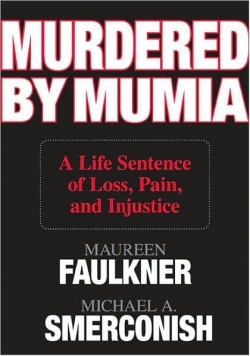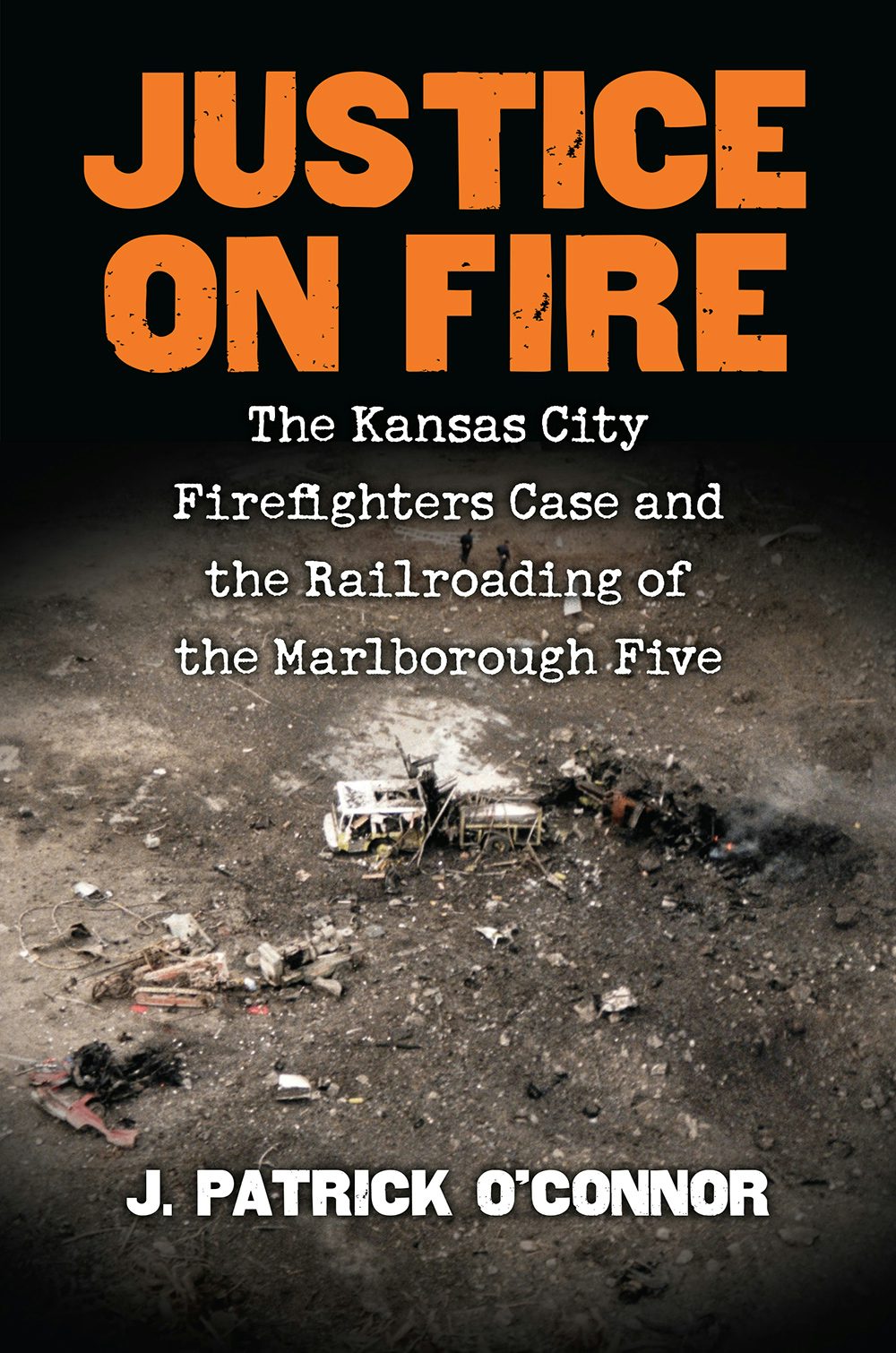(The Lyons Press)
Vendetta
There's a great deal to admire about Maureen Faulkner, the widow of Philadelphia Police Officer Daniel Faulkner who was shot to death on December 9, 1981. Less than six months later she bravely sat through the entire trial that concluded with Mumia Abu-Jamal's conviction for first-degree murder and a sentence of death. Over the next 25 years, while Abu-Jamal was becoming the Alpha symbol of the anti-death penalty crusade, Maureen Faulkner became its Omega.
As the "Free Mumia" movement began to take hold in the early 1990s, Mrs. Faulkner, now living in Southern California, felt repulsion. When the Yale Law Journal published an essay by Abu-Jamal in 1991 entitled, "Teetering on the Brink: Between Life and Death," she reacted as she would time and time again over the ensuing years by contacting the person responsible for the favorable treatment of Abu-Jamal. In this case, it was Yale editor Robert Gulack. When Gulack offered to publish an essay of hers, she told him "I wasn't asking for equal space. The point was that he was publishing the work of a murderer."
What really galled her was the short bio of Abu-Jamal that ran with the essay. In detailing a number of his accomplishments, casting aspersions on the fairness of his trial, and noting the national and international support galvanizing around his case, the bio failed to make "any mention of the man murdered by Mumia Abu-Jamal, my husband, Danny Faulkner," Mrs. Faulkner writes in her recently released book Murdered by Mumia: A Life Sentence of Loss, Pain and Injustice. (Michael A. Smerconish, a Philadelphia talk-show host and newspaper columnist, was her co-author.) Ironically, her own book's title is guilty of the same omission.
The next year it was National Public Radio offering Abu-Jamal a commentator slot on its evening broadcast, "All Things Considered," to report periodically on prison conditions, agreeing to pay him its standard rate of $150 per segment. Mrs. Faulkner swung into action, writing letters to major NPR contributors. On the day the first segment was to air, "All Things Considered" producer Ellen Weiss called Mrs. Faulkner and told her all Abu-Jamal commentaries had been cancelled, saying to her, "You got your wish."
The day in 1995 that Addison-Wesley released Abu-Jamal's first book, Live From Death Row, Mrs. Faulkner hired a small plane to circle its Massachusetts headquarters during morning and evening rush hour and at noon with a banner trailing it that read, "Addison-Wesley Supports Cop Killer."
Mrs. Faulkner, 25 when her husband was killed, has been in a melodrama since, crisscrossing the United States to press for Abu-Jamal's execution. At one point she references an Op-Ed piece that E. L. Doctorow wrote for The New York Times in mid 1995 that ended with this question: "Will the pain of Officer Faulkner's widow, who supports Mr. Jamal's execution, be resolved if it turns out that the wrong man has been executed and her husband's killer still walks the street?" At the end of the book, she inadvertently gets around to answering this haunting question by recalling her response to another question at a news conference. "After the press conference, I walked away feeling uplifted by the fact that I had not only expressed my desire to see Jamal executed, but that I had a chance to explain why I felt that way. I also felt good about expressing my feelings, as a survivor, about capital punishment and why my family and I need to see Jamal executed."
Readers who come to this book looking for an enlightened assessment of the most controversial death-row case in recent memory will not find it here. The book is a polemic from beginning to end, laced with the pain Mrs. Faulkner has suffered and the vitriol she has amassed for Abu-Jamal. She truly loathes Abu-Jamal, referring to him variously as "a latter-day Charles Manson," "this evil man," and "such vermin." Her term for those who support her archenemy is "Mumidiots." She reports that she resents and remembers every one of them.
Her obsessive hate for Abu-Jamal has blinded her to the prosecutorial misconduct and judicial bias that plagued his trial and justifiably fueled his rise to a world stage. The real villains in her life were the police and prosecutors who framed Abu-Jamal for Officer Faulkner's killing. They are ones, not the long drawn out appellate process that has kept Abu-Jamal alive, who have denied her the closure she was due more than twenty-five years ago.
To this day, Mrs. Faulkner remains adamantly oblivious to the constitutional legitimacy of the two defense claims argued on Abu-Jamal's behalf before a three-judge panel of the U. S. Court of Appeals for the Third Circuit in May. The first is known as a Batson claim. At Abu-Jamal's trial, the prosecutor used 10 peremptory challenges to exclude otherwise qualified blacks from the jury, resulting in a jury of nine whites and three blacks. If the Third Circuit finds "an inference of discrimination" in the prosecutor's use of peremptory challenges, a new trial would be ordered. The second claim is even more clear cut. During the prosecutor's summation to the jury during the guilt phase of the trial, he told the jurors that their verdict might not be final because there would be "appeal after appeal after appeal." If the Third Circuit finds that such comments lessened the jury's sense of responsibility for its verdict, a new trial would be ordered.
The Third Circuit is also weighing a prosecution claim to reinstate Abu-Jamal's death sentence. In 2001, a federal judge lifted it due to the trial judge's misleading oral and written instructions to the jury during the sentencing phase of the trial. The odds against the reinstatement are astronomical.
In all likelihood, the Third Circuit will order a new trial. It is difficult to imagine the Commonwealth actually retrying Abu-Jamal, but its vendetta against him is as visceral as Mrs. Faulkner's. Regardless, the possibility of Abu-Jamal being set free is high, as is the possibility of Mrs. Faulkner finally finding out not only who killed her husband, but the extraordinary corrupt lengths the Philadelphia police and D.A.'s Office used to pin the crime on Abu-Jamal. These revelations – instead of bringing her the closure she has so mightily fought for – will end up denying her the only closure she was duped into ever wanting: Abu-Jamal's execution.
J. Patrick O'Connor is the editor of Crime Magazine (www.crimemagazine.com). His book, The Framing of Mumia Abu-Jamal, will be released by Lawrence Hill Books in May of 2008.









